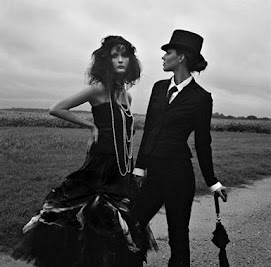Born as the second son of a six-children family, the author of the play "A Doll's House" is a Norwegian writer named Henrik Ibsen. Henrik Ibsen was born on March 20, 1828 in the small town of Skien, Norway. Most of his plays were viewed as controversial pieces and his style of writing was the step stone of modern drama in plays. During his 19th century lifetime, Ibsen’s writings went against the European Victorian family values and censorship. As a child, Ibsen aspired to in becoming an artist. His mother, an avid painter fell in love with the idea of the theater.
During his mid-teenaged years, Ibsen’s education was brought to a sudden halt do to his families financial difficulties. Once he was out of school, Ibsen was apprenticed to a pharmacist in Grimstad for seven years. During those seven years, Ibsen discovered his passion for writing. In addition, in the course of those seven years, Ibsen married Suzannah Thoresen, the stepchild of the novelist Magdalene Thoresen and had their only child, Sigurd. Together the Ibsen’s worked in the theater until it went bankrupt in 1862. This misfortune forced them to leave Norway and they spent the next twenty-seven years living in various cities throughout Europe.
During his life, after publishing several of is most famously known works, Ibsen received an award for foreign travel from the government, and was also aided with financial help from Bjørnstjerne Bjørnson. He even lived in Germany and Italy until he suffered a horrible stroke in the year of 1900 that disabled him to write, work in the theater, and even continue his routine lifestyle for its remainder. During the year of 1906, Ibsen died due to a series of strokes.
The title of the play, A Doll’s House, may relate to Ibsen directly. It was said, that as a child Ibsen commonly experienced social isolation and was on his own to self-discovery. This work of his, A Doll’s House, was famous for strongly illustrating women imprisoned by the rules of society, “trapped in a doll’s house”, and unable to truly find their own voices. It has been said that Ibsen is known in the literary and theatrical worlds for his contribution to the study of social isolationism and the study of individualism. Although his works have been published over a century ago, Ibsen’s legacy has gained international acknowledgment and respect over the years.
Society took the role of the woman and greatly diminished it. It restricted women to the roles of a housekeeper, chefs and even a baby sitter. Society promoted women as the weak, dependant, and…. Gender. All that Ibsen was trying to do was educate the people of his time period. He was trying to tell them that their way of thinking and viewing women was wrong. Although his modern mentality didn’t quite fit his time era, Ibsen set a great example for revolutionary outcasts and inspired many women to take control of the situation which later instigated women’s rights and lead our country to what it is today. People such as Ibsen led the women of our country to be outspoken, unrestrained and dollhouse free figures in society.
I gathered my research from these sites:
http://www.bookrags.com/notes/dh/BIO.htm
http://www.kirjasto.sci.fi/ibsen.htm
http://www.britannica.com/EBchecked/topic/280962/Henrik-Ibsen
First Post by Tuesday, 11:59PM
9 years ago



Wow great job; a lot of information i had no idea about, like how Henrik was a pharmacist before he actually became a playwright, was pretty cool. nice post im sure you'll put up alot more good ones ! =]
ReplyDeleteNice job Michelle, plenty of info. to get someone started with "A Doll's House" I do agree with some points you made about the women during that time. Although Henrik does show how women can be outspoken and etc. in the story he does show how a woman can deceive her husband and keep things from him. Besides that I do believe his writings showed a strong side of women.
ReplyDeleteNice post Nelson. I like how you used the research to support your opinion and Michelle's opinion as well. Very college level :)
ReplyDeleteThanks and thats exactly what i was trying to portray.Even though Nora is a grown woman, in a way she was treated as a kid or his little songbird.. back then freedom wasnt the biggest thing for women; havin children were.
ReplyDelete